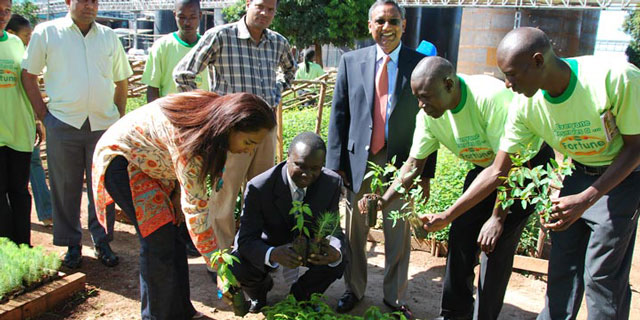
INTERVIEW: Kodey Rao is the managing director of Bidco Uganda Limited, the producer of edible oil. He spoke to The Independent’s Isaac Khisa about the country’s edible oil industry and the future outlook.
What is the assessment of edible oil consumption in the country at the moment?
Edible oil consumption in this country is slowly rising as income of the population rises and the trend is likely to continue. At the time of our entry in Uganda (in 2005), edible oil consumption was just 2.5kg but has now increased to 4.5-5kg per person per annum. However, this is still below the 8-10kg per person per annum as per the World Health Organisation. Obviously, edible oil consumption in poor countries including Uganda is relatively low compared with what is required in spite of people accessing oils indirectly through consumption of meat, fish among others. But there’s hope that consumption is going to increase as people’s income increases.
What is the quantity of edible oil that Uganda consumes as compared with the production levels?
Our current edible oil consumption stands at around 180,000 tonnes per annum but that is expected to go up as income of the population increases. Looking at the edible oil imports, statistics indicate that around 100,000 tonnes of edible oil is imported into the country but I think that it could be around 300,000 tonnes compared with Kenya’s 500,000 tonnes per annum. Some of it is exported to the neighbouring countries.
What is percentage of your export volumes to the neighbouring countries?
Previously our regional markets, with the exception of Kenya, accounted for almost 30% of our total edible oil production but it has now reduced. This is because of conflict in South Sudan while Rwanda and Burundi striving to have their own industries.
Rwanda is imposing a 25% import duty on our products, a similar rate that they are charging imports from Malaysia. This tend to affect our competitiveness because our factory produces 200-300 tonnes of edible oil per day yet our counterpart in Malaysia produces more than 3,000.
But the whole point is that if a country impose high taxes on the product, it increases the final price of that particular product. And if the consumer reduces the consumption because of high prices, then production will go down and this will eventually lead to high production costs resulting to high prices.
The government in the national budget 2017/18 reinstated a 10% import duty on crude palm oil. Does that mean that edible oil producers in Uganda produce much oil and there was need to protect the local raw material producers?
We actually produce a very negligible edible oil. For instance, we are the largest single producer of edible oil in this country as Bidco and it is because we have a big plantation of palm trees covering 10,000 hectares. At the moment, we produce 30,000 tonnes of edible oil and we can go up to 45,000 tonnes per annum. Now, across the East African Community, raw materials for edible oils are zero rated. But the Uganda government thought that by imposing a 10% import duty, they will be able to support the local raw material producers. But will that benefit go to the producer? That is the big question. As Bidco, we pay almost 100% more than the best pay in Africa to farmers. We give almost 82% of the value of oil to the farmer. And therefore increasing taxes in this industry will simply make the middle-man benefit more as he/she will not pass on the benefits to the farmer. The government tried it in rice and instead it has led to eventual collapse of the rice industry. In my view, the tax on import on crude palm oil simply brings in inefficiencies in edible oil production.
 The Independent Uganda: You get the Truth we Pay the Price
The Independent Uganda: You get the Truth we Pay the Price






WELL
Thanks so much for the informstion, however this was only in 2017 last year
what is the current status quo of this projects progress on the island?
Thanks
Great progress, i love to say i have picked alot of in sight from this about Buvuma islands.
How much money do I need to invest in BIDCO
How much money do I need to invest in bidico